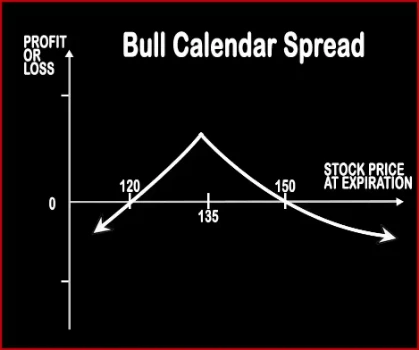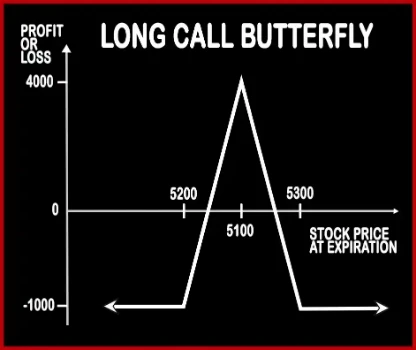Compare Strategies
| BULL CALENDER SPREAD | LONG CALL BUTTERFLY | |
|---|---|---|

|

|
|
| About Strategy |
Bull Calendar Spread Option StrategyThis strategy is implemented when a trader is bullish on the underlying stock/index in the short term say 2 months or so. A trader will write one Near Month OTM Call Option and buy one next Month OTM Call Option, thereby reducing the cost of purchase, with the same strike price of the same underlying asset. This strategy is used when a trader wants to make prof |
Long Call Butterfly Option StrategyA trader, who is neutral in nature and believes that there will be very low volatility i.e. expects the market to remain range bound, will implement this strategy. This strategy involves selling of 2 ATM Call Options, buying 1 ITM Call Option & buying 1 OTM Call Option of the same expiry date & same underlying asset. The difference between the strikes sho .. |
BULL CALENDER SPREAD Vs LONG CALL BUTTERFLY - Details
| BULL CALENDER SPREAD | LONG CALL BUTTERFLY | |
|---|---|---|
| Market View | Bullish | Neutral |
| Type (CE/PE) | CE (Call Option) + PE (Put Option) | CE (Call Option) |
| Number Of Positions | 2 | 4 |
| Strategy Level | Beginners | Advance |
| Reward Profile | Unlimited | Limited |
| Risk Profile | Limited | Limited |
| Breakeven Point | Stock Price when long call value is equal to net debit. | Upper Breakeven = Higher Strike Price - Net Premium, Lower Breakeven = Lower Strike Price + Net Premium |
BULL CALENDER SPREAD Vs LONG CALL BUTTERFLY - When & How to use ?
| BULL CALENDER SPREAD | LONG CALL BUTTERFLY | |
|---|---|---|
| Market View | Bullish | Neutral |
| When to use? | This strategy is used when a trader wants to make profit from a steady increase in the stock price over a short period of time. | This strategy should be used when you're expecting no volatility in the price of the underlying. |
| Action | Sell 1 Near-Term OTM Call, Buy 1 Long-Term OTM Call | Sell 2 ATM Call, Buy 1 ITM Call, Buy 1 OTM Call |
| Breakeven Point | Stock Price when long call value is equal to net debit. | Upper Breakeven = Higher Strike Price - Net Premium, Lower Breakeven = Lower Strike Price + Net Premium |
BULL CALENDER SPREAD Vs LONG CALL BUTTERFLY - Risk & Reward
| BULL CALENDER SPREAD | LONG CALL BUTTERFLY | |
|---|---|---|
| Maximum Profit Scenario | You have unlimited profit potential to the upside. | Adjacent strikes - Net premium debit. |
| Maximum Loss Scenario | Max Loss = Premium Paid + Commissions Paid | Net Premium Paid |
| Risk | Limited | Limited |
| Reward | Unlimited | Limited |
BULL CALENDER SPREAD Vs LONG CALL BUTTERFLY - Strategy Pros & Cons
| BULL CALENDER SPREAD | LONG CALL BUTTERFLY | |
|---|---|---|
| Similar Strategies | The Collar, Bull Put Spread | - |
| Disadvantage | • Limited profit even if underlying asset rallies. • If the short call options are assigned when the underlying asset rallies then losses can be sustained. | • Due to limited lifespan of call options, you can lose the premium paid. • Limited profit which is bound in a narrow range between the two wing strikes. |
| Advantages | • Limited losses to the net debit. • Enable trader to book profit even if underlying asset stays stagnant. • If the market trends reverse, cashing in from stock price movement at limited risk. | • Under this strategy, a trader can book profit even when there is not volatility in the market. • Limited risks to the net premium paid. • This strategy allows you to gain more profits by investing less and limiting your losses to minimum. |